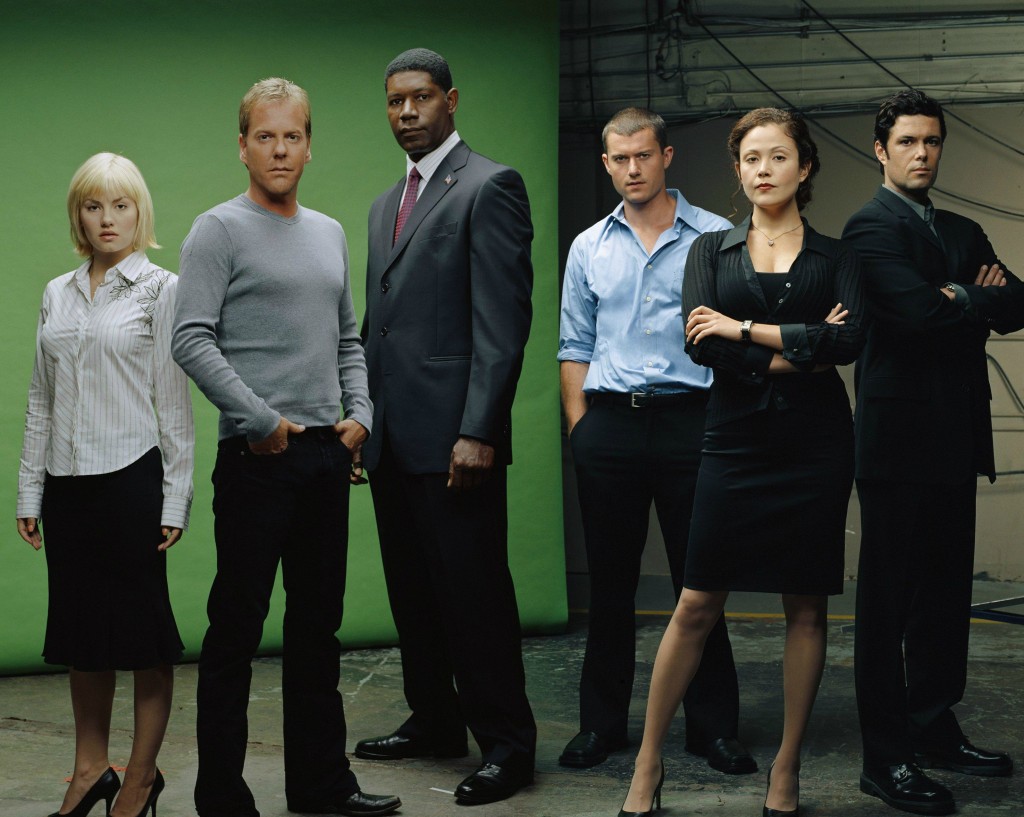
Photo: Fox
SPOILERS…You’ve been warned!
In the past decade plus of television, the ever looming killing off of beloved characters has become like a sport to TV writers. And why not? It boosts ratings, proves that the stakes on a show are “real,” and gives them more critical acclaim. Not to mention the beloved surprise/shock factor. While the killing off of characters has always been a thing on television, now it’s just become rampant to the point of being unoriginal. Not to mention the knife it’s stabbed into the beating heart of creativity.
At first, these TV deaths were shocking. Just think about the first season of 24 when Jack’s wife was offed in the final seconds of the first season (after having survived kidnapping and all other sorts of life-threatening situations previously). It was a twist that left many of us with our mouths wide open. Soon after, many other shows followed suit. But what at first started off as surprising, eventually became expected and even obvious. 24 became one of the largest culprits where main and supporting characters were killed off left and right (often without much of a reason). In fact, it was more surprising when a character did live. Despite the lack of surprise for the audience, killing characters doesn’t seem to be slowing down anytime soon.
And unfortunately, the killing off of characters on TV shows has not only become a sport for writers, but it’s also become one for the viewers. On TVLINE their May Sweeps Scorecard for 2014 season finales so far has “28” deaths. And that’s just one month and on only the broadcast networks. It doesn’t even begin to include cable or even the rest of the TV season. If so, the numbers would be much higher.
And yet, when one reads the comment sections the audience expects deaths from shows, whether that expectation is good or bad. In fact, it has become accepted in critical circles to believe that it makes shows prove they’re serious and are in fact better than other shows that don’t have the so-called guts to do it. However, viewers appear to have mixed feelings about this trend. Some viewers believe the constant deaths make shows better while others call it ridiculous because there’s too much of it.
With these varying expectations, some writers feel that to prove themselves they need to kill off characters to be taken seriously as a show by critics and by the audience. But can that cause the audience not to trust writers if they don’t do it well? I know personally that when Kelly Souders and Brian Peterson killed off Davis Bloome and Jimmy Olsen in the season 8 finale “Doomsday” of Smallville I developed an inherent lack of trust for TV writers. They didn’t just kill the characters, they killed them in a way that lacked actual believable development. We learned after seasons of characterization that Jimmy wasn’t the real Jimmy (his brother was) and that Davis was a psycho not worthy of redemption (even though the entire season showed the audience otherwise). It was a bad move and many of the fans labeled the episode “Failsday.” Just because it was “shocking,” doesn’t mean it was a good shock. These developments hurt the series and turned many people off the show, myself included.
A good example of writers using death as a means to be taken seriously, are Edward Kitsis and Adam Horowitz from Once Upon a Time. But when they killed off Sheriff Graham in only episode seven there was more than a little backlash from fans.
According to them in an interview on Zap2it, they said: “we want the stakes to be real.” For a whole season, while many viewers expected to see Sheriff Graham return alive…it is a fairy tale story, after all, they were disappointed to learn that the writers had every intention of making his death stick so as to prove how serious their show was. But could they have made the stakes real without his “shocking” death? Death doesn’t always have to be the solution to get the audience to believe that there are real stakes on a show; or that just because it’s a fairy story that darkness can’t trickle in.
The truth is they never handled the aftermath of Graham’s death well. While it may have shown the audience that the writers are willing to kill off main characters, the actual characters within the story didn’t have that much of an emotional arc from said death. It did work as a way for Emma to become Sheriff. But I never felt like the characters reacted to his death enough. Sheriff Graham, for a while anyway, became the elephant in the room. In fact, the scene when Emma learns the truth about who killed Graham and the confrontation that followed with Regina is only a deleted scene on the first season’s DVD. Not important enough to actually make it past the cutting room floor. What a disappointment. If Graham’s death was so necessary to give the characters growth, why were much of the emotional reactions surrounding his death shown off screen?
Just like older films had to rely on camera tricks, good writing and subtlety to tell a story because they couldn’t have profanity or rely on CGI, older shows had to use other creative ways to move a story forward and develop characters than the constancy and promise of death.
So that brings me to my question. Is the sport of killing characters on TV also killing creativity? Just like older films had to rely on camera tricks, good writing, and subtlety to tell a story because they couldn’t have profanity or rely on CGI, older shows had to use other creative ways to move a story forward and develop characters than the constancy and promise of death.
Recently I remember watching the episode “SR. 819” of The X-Files where Scully and Mulder have to find a way to save Skinner before he succumbs to a fatal disease which was biologically engineered. As the episode ended and Skinner survived, I appreciated the creative way in which the writers came up with to in fact keep him alive. It occurred to me that if this was on TV right now, there’s a high chance he wouldn’t have made it out alive. “How shocked would the audience be if we killed off Skinner?” the writers might ask. Or “imagine the emotional arc of Scully and Mulder we could show after his death,” the writers might also argue. That’s not to say that The X-Files didn’t kill off characters, but they certainly were more strategic about it. They didn’t wait till season finales, for instance, to kill off a character to boost ratings. Creativity and good writing trumped manipulation. It’s likely Skinner wouldn’t have made it alive through all 9 seasons if he was a character on a show written today.
TV deaths work when there remains a greater thematic purpose behind it.
Does that mean there should be no death? Of course not. Death is a part of life. But it should be done in a way that feels organic. TV deaths work when there remains a greater thematic purpose behind it. Besides, a story can move forward creatively without killing someone. So again I’m not saying we should never kill off characters, I just think writers should be more careful and thoughtful about it. If the death doesn’t feel earned you’re only going to end up with really angry viewers.
The amount of deaths on Grey’s Anatomy, for instance, has become so common that it was actually shocking when Christina Yang’s exit this season didn’t end up with her in a morgue. Seattle’s Grace has so many dead characters within the hospital (many not even patients) that I’m surprised it hasn’t transitioned into a daytime soap or even a supernatural series. And speaking of supernatural series, The Vampire Diaries’ death scorecard is so high, it’s amazing there are any characters left on that show. It must be why they had to bring back Alaric to life for next season (not that I’m complaining).
However, the trend of killing characters isn’t always bad. In some ways, it can make shows better because it’s not just the extras who can now die. The idea that no one is safe DOES raise the stakes on shows. But unfortunately, the writers have used the killing off of main characters too often, where it has become about as shocking to kill off big characters than it used to be to kill off extras on old shows. What needs to happen is a better balance. The killing of characters has of late become too much of a crutch. If all else fails when a story isn’t working, kill off a character, right? Many times these characters’ deaths prove unnecessary to the story or characters and at times even really hurt the show.
But if writers (and the networks by extension) were to decide only to kill when it works, when it actually is creatively the best choice, then by all means do it. As much anger as there was over the death of Will Gardner on The Good Wife, creatively and thematically it was done well and it felt creatively right (which I know is subjective). What other choice could the writers have made? Will and Alicia were two characters who loved each other, but bad timing defined them. His death proved to be the ultimate bad timing. Was it shocking? Yes. But it was also done in a thematic way that felt true.
In all, I hope the future of killing off characters tones down a bit. It shouldn’t be the easy option; it should be the hard one. And no matter what, it should always make sense to the story.
What do you think? Do you think the killing off of characters has become too much of a sport? Or do you think it makes shows better? Sound off below.
RELATED POSTS:
Why Happily Ever After Deserves Our Respect
Romantic Moment of the Week: Will and Alicia
ARE YOU A ROMANCE FAN? FOLLOW THE SILVER PETTICOAT REVIEW:
 Our romance-themed entertainment site is on a mission to help you find the best period dramas, romance movies, TV shows, and books. Other topics include Jane Austen, Classic Hollywood, TV Couples, Fairy Tales, Romantic Living, Romanticism, and more. We’re damsels not in distress fighting for the all-new optimistic Romantic Revolution. Join us and subscribe. For more information, see our About, Old-Fashioned Romance 101, Modern Romanticism 101, and Romantic Living 101.
Our romance-themed entertainment site is on a mission to help you find the best period dramas, romance movies, TV shows, and books. Other topics include Jane Austen, Classic Hollywood, TV Couples, Fairy Tales, Romantic Living, Romanticism, and more. We’re damsels not in distress fighting for the all-new optimistic Romantic Revolution. Join us and subscribe. For more information, see our About, Old-Fashioned Romance 101, Modern Romanticism 101, and Romantic Living 101.

Totally agree with this.
One of the worse shows was Prison Break. There were so many deaths in Season 2 I almost stopped watching. It wasn’t a shock anymore, just tiresome. But the ending … they wrap up the story and then tag five minutes on to kill off the main character. The reasons didn’t even make sense. Aargh!
Yes, I agree the ending of Prison Break was kind of pointless. I mean, why? What was the point? Seems strange.
Yeah I couldn’t agree with this more. The Good Wife made good use of this and it was emotionally resonant. It didn’t feel cheap. Shows like The Vampire Diaries and Grey’s Anatomy made death not matter creatively anymore, they’ve made it just cheap story telling. Especially Vampire Diaries, because death doesn’t even mean death anymore. Or Supernatural. Same thing. I get that they are Paranormal show but it’s just been done to death (pardon the pun) and I wish they’d find something better to use as a storytelling device.
Sorry for the late reply! But yeah, I agree about The Good Wife completely. There was nothing cheap about Will’s death. In all, shows really need to find the right way to use death. If it’s true to the story then by all means do it. If not, if it’s just a cheap device, then rethink it and come up with something else.
Actually, the scheme backfires with people like me. Why should I watch a show when I can’t get invested in the characters because the writers might kill them “just cuz”? Or it gets into ridiculous territory like Vampire Diaries and Once Upon a Time. Death has absolutely no meaning or emotional punch because the writers could get stuck and decide “Hey, things are getting a little stale, let’s bring that character back!” You hit the nail on the head with Sheriff Graham. Heck, so many of the characters just disappeared! Where’s Ruby? Where’s Cinderella? Heck, what happened to the dwarves NOT named Grumpy? Didn’t Grumpy have a girlfriend? Cheap writing is cheap and no amount of “death” is going to cover that up.